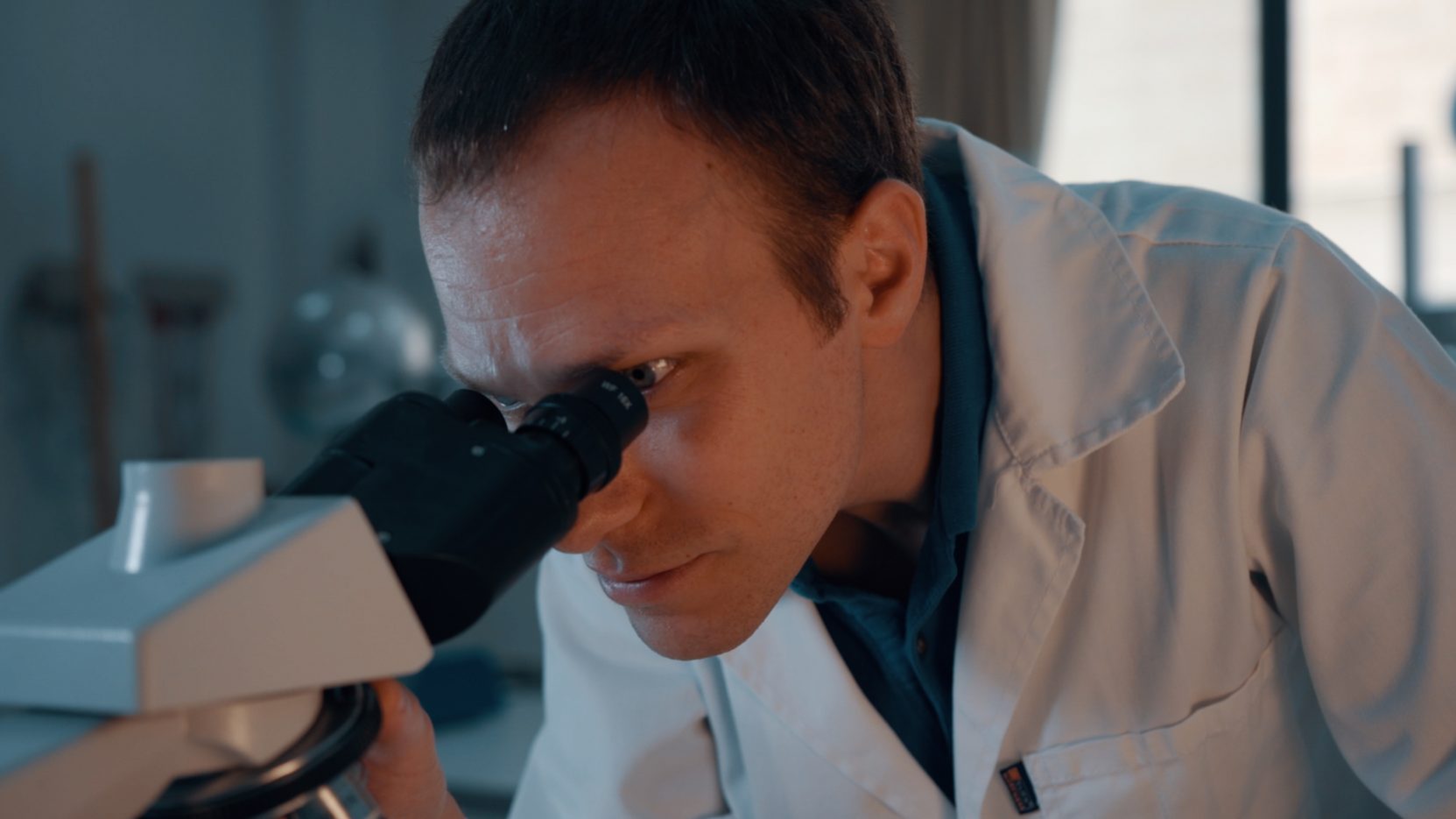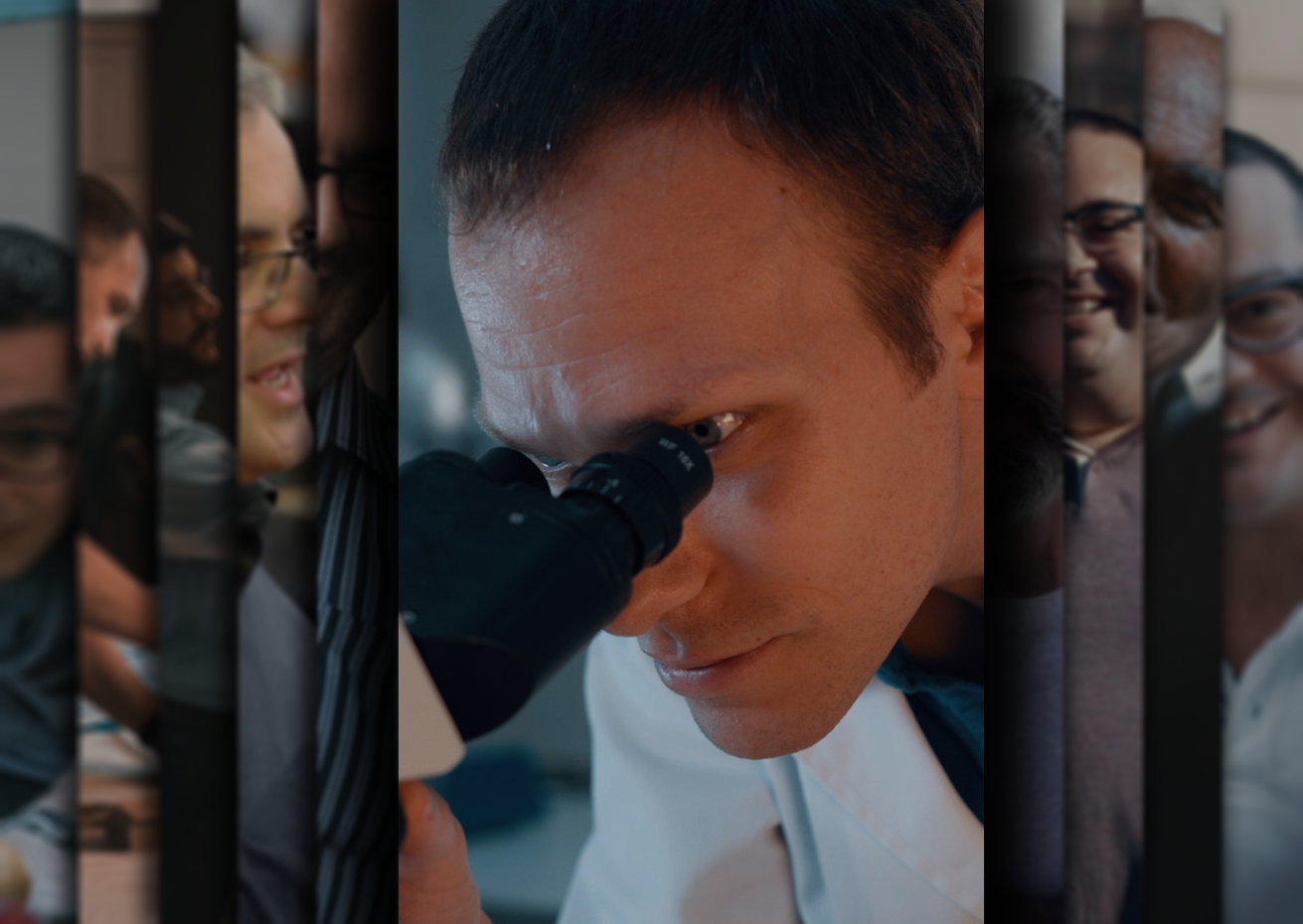
Admittedly, I do not really believe that science and studying science have helped me a great deal in my vocational discernment. However, they did help me confirm my faith in Our Father the Creator and to simultaneously understand his greatness and understand the fact that we may not always be able to understand him fully.
When you look at certain natural processes, such as cell multiplication in an embryo or the way different cells start to take a specific function, or the way a budding rose blooms, or when you look at the immense galaxies in photos taken by the Hubble telescope, I believe it is difficult that one does not ask himself whether there is indeed any Creator behind all this. If we continue with this analogy, then this Creator must be both great and mysterious. The same question resurfaces when one discovers that the so called “golden number” is precisely found in so many elements in nature, be it flowers, snail shells and even the formation of whole galaxies. Science explains how all these things work but it does not explain why they work in this manner; and this is what continues to convince me about God’s presence as a good Creator.
Indeed, as St Albert the Great used to believe, “The whole world is theology for us, because the heavens proclaim the glory of God”.
So, in this particular sense, science has helped me to strengthen my faith and vice versa, understanding that one cannot exist without the other. Thus, I really hope that having studied sciences will be an asset in my dialogues with non-believers.
One thing that observing nature has taught me, and which I hope to keep on treasuring in the future, is the importance of not rushing in my priestly ministry with persons. Similarly to how a strong olive tree requires a good number of years to grow properly and mature, people require a lot of patience and time to grow and mature and we as priests need to respect their processes and journeys. Nature has also taught me that life is short and almost insignificant in a certain sense, especially when compared to other processes of Creation such as those of the great mountains or even Earth itself. At the same time, this thought does not dampen my enthusiasm for my duties towards the Kingdom of God and so I say yes to the life of priesthood with joy and fervour. At the same time, I do hope that God helps me remain humble, remembering that I am just one creature who does not have the power to change the world. But, paraphrasing a known saying, I will strive to do my best and let Our Creator do the rest.
Michael Debono SJ – debono.m@gesuiti.it
Ikolli ngħid li onestament ma nħossx li x-xjenza u l-istudju tagħha għenuni wisq fid-dixxerniment jew tfittxija tal-vokazzjoni tiegħi imma għenuni fuq kollox nikkonferma l-fidi tiegħi f’Alla Ħallieq u li nagħraf kemm hu kbir u fl-istess ħin misteru li qatt ma nistgħu nifhmuh għal kollox.
Meta tħares lejn ċerti proċessi fin-natura, bħalma hi l-multiplikazzjoni taċ-ċelloli f’embrijun u kif ċelloli differenti jibdew jieħdu funzjonijiet differenti, jew kif tinfetaħ warda, jew meta tara l-immensità tal-galassji f’xi ritratt meħud mit-teleskopju Hubble, naħseb diffiċli ħafna li wieħed ma jistaqsix lilu nnifsu hemmx ħallieq wara dan kollu u kemm b’analoġija għandu jkun kbir u misterjuż ladarba l-ħolqien huwa daqshekk kbir u misterjuż. L-istess mistoqsija naħseb li tiġi meta wieħed jiskopri li l-imsejjaħ “numru tad-deheb” jinsab b’mod preċiz f’tant affarijiet fin-natura, bħalma huma ċerti fjuri, il-qxur tal-bebbux, u saħansitra l-forma ta’ galassji sħaħ. Dawn l-affarijiet kollha u li x-xjenza spiss tispjega kif jaħdmu, imma mhux faċli tispjega għaliex jaħdmu hekk, lili jkomplu jikkonvinċuni fil-preżenza ta’ Alla ħallieq u tajjeb. Fil-fatt, bħalma kien jaħsibha San Albert il-Kbir: “id-dinja kollha hi teoloġija [jiġifieri titkellem fuq Alla], għax is-smewwiet iħabbru l-glorja t’Alla”. F’dan is-sens, anki lili, ix-xjenza tgħinni nissaħħaħ fil-fidi u viċiversa, b’tali mod li waħda ma tmurx kontra l-oħra. Nittama għalhekk li l-istudju tax-xjenzi jkunu jistgħu jgħinuni wkoll fit-tfassil ta’ djalogu onest ma’ min ma jemminx.
Xi ħaġa li l-osservazzjoni tan-natura għallmitni u li nittama nibqa’ ngħożż fil-futur hija l-importanza li ma ngħaġġilx fil-ministeru saċerdotali tiegħi man-nies. Bħalma siġra b’saħħitha taż-żebbuġ (u mhux biss) iddum medda ta’ snin biex tikber u timmatura, hekk il-persuni jirrikjedu ħafna paċenzja u żmien biex jikbru u jimmaturaw u wieħed għandu jirrispetta l-mixja u l-processi tagħhom. In-natura wkoll tgħallimni kemm il-ħajja tagħna hi qasira u f’ċertu sens insinjifikanti, meta mqabbla mal-proċessi tal-ħolqien ta’ xi muntanja jew tad-dinja. Fl-istess ħin, dan il-ħsieb ma nħossx li jneħħili l-entużjażmu biex nagħmel il-parti tiegħi għat-twaqqif tas-Saltna t’Alla u ngħid iva għas-sejħa għall-ħajja reliġjuża u saċerdotali b’ferh u żelu. Imma min-naħa l-oħra nittama li dan il-ħsieb jgħinni nżomm saqajja mal-art; niftakar li jiena kreatura u li ma naħsibx li għandi s-saħħa nbiddel id-dinja, imma li sempliċiment nagħmel l-almu tiegħi u mbagħad nħalli f’idejn il-Missier u l-ħallieq ta’ kollox.
